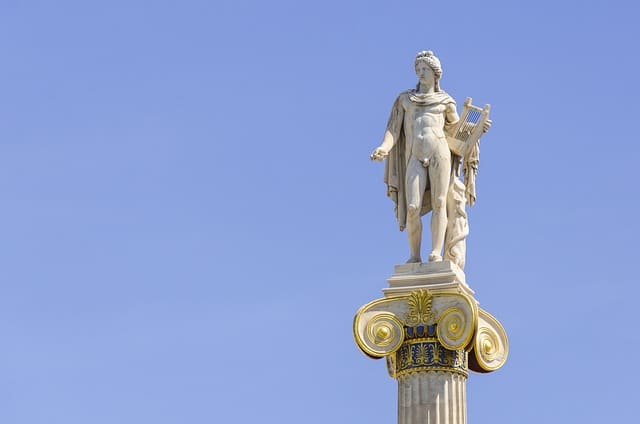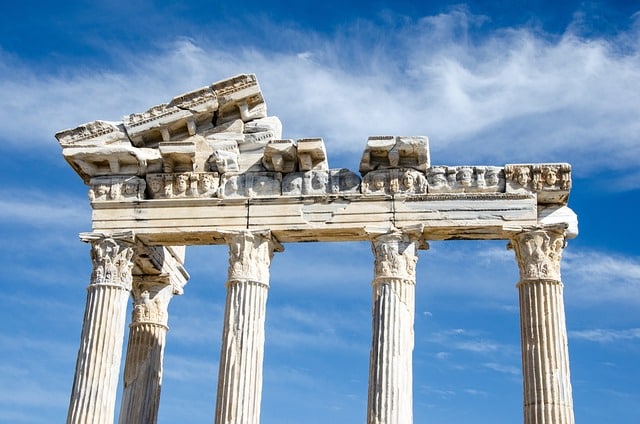
Sculpture of the god Apollo, whose virtues are highlighted by the adjective "Apollinian"
What is linked to Apollo , one of the most relevant gods in Greek mythology, is described as Apollonian . The term derives from the Latin word Apollineus .
Virtues of Apollo
The adjective Apollonian, in this way, is used to refer to someone who has the main virtues attributed to Apollo , such as balance and serenity . It is common for the concept to be used in opposition to dionysiac (impetuous, impulsive).
A dichotomy arises, therefore, between the Apollonian and the Dionysian. This duality, developed in the field of philosophy , arose from “The Birth of Tragedy in the Spirit of Music” , a book written by the German thinker Friedrich Nietzsche .
In Nietzsche 's work, Apollo (and the Apollonian) symbolizes the rational and the elevated, while Dionysus (the Dionysian) represents sensuality and the earthly. Thus there is an antagonism between the Apollonian and the Dionysian, although both ideas are considered indispensable in the development of any drama. In fact, it was Nietzsche himself who proposed this dichotomy that would become part of countless works of philosophy and literature.
Perfection of forms
The Apollonian, on the other hand, is associated with the perfection of forms . That is why an Apollonian man stands out for the beauty of his body, just like Apollo in his sculptures and representations.
Apollo
It is important to mention that Apollo , son of Leto and Zeus and brother of Artemis , is one of the most important gods of Olympus in the mythology of ancient Greece. For this reason, various temples were built in his honor. His functions and attributes were numerous, and it is possible that only Zeus surpasses him in influence and veneration. It is said that only his parents could contain his power, and that the rest of the gods feared him.
He is the chief of the muses , and the patron of the Oracle of Delphi . He is also considered the god of various arts and archery, a protector always attentive from the sky to protect or attack. From its myth, the notion of Apollonian refers to truth , harmony , poetry , clarity and beauty , for example. Plagues, sudden death and diseases, as well as protection against evil and healing are other powers that characterize his deity.

Remains of one of the many temples honoring Apollo
His myth has a poorly defined origin. However, it is known that in the 8th century BC. C. already enjoyed considerable relevance, since in the Iliad he is among the most mentioned gods. Later, the Romans included it in their mythology: in the 5th century BC. C. they erected the first of the temples dedicated to him. The hymns dedicated to him are known as peanes , which derives from that of his grandson, Paean, son of the god of medicine and healing, Asclepius.
His muses were some of his love partners , of which he had a large number. This, added to his weakness for the opposite sex, led him to father nearly twenty children. She also had romances with men, such as Jacinto and Cipariso. According to most images of Apollo, he is usually depicted as young, beardless, and usually without clothes. He may also have a bow and a quiver, or a lyre that his brother Hermes created for him. Likewise, the animals that symbolize it can accompany it, such as the crow, the griffin (a mythological animal that combines elements of the eagle and the lion) and the snake.
